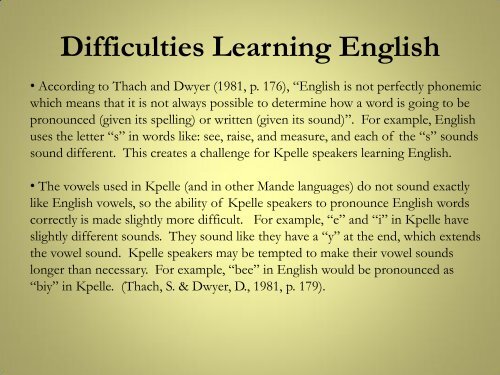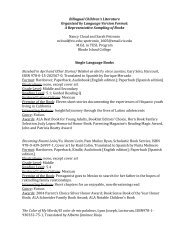Kpelle - RITELL
Kpelle - RITELL
Kpelle - RITELL
You also want an ePaper? Increase the reach of your titles
YUMPU automatically turns print PDFs into web optimized ePapers that Google loves.
Difficulties Learning English<br />
• According to Thach and Dwyer (1981, p. 176), “English is not perfectly phonemic<br />
which means that it is not always possible to determine how a word is going to be<br />
pronounced (given its spelling) or written (given its sound)”. For example, English<br />
uses the letter “s” in words like: see, raise, and measure, and each of the “s” sounds<br />
sound different. This creates a challenge for <strong>Kpelle</strong> speakers learning English.<br />
• The vowels used in <strong>Kpelle</strong> (and in other Mande languages) do not sound exactly<br />
like English vowels, so the ability of <strong>Kpelle</strong> speakers to pronounce English words<br />
correctly is made slightly more difficult. For example, “e” and “i” in <strong>Kpelle</strong> have<br />
slightly different sounds. They sound like they have a “y” at the end, which extends<br />
the vowel sound. <strong>Kpelle</strong> speakers may be tempted to make their vowel sounds<br />
longer than necessary. For example, “bee” in English would be pronounced as<br />
“biy” in <strong>Kpelle</strong>. (Thach, S. & Dwyer, D., 1981, p. 179).
















